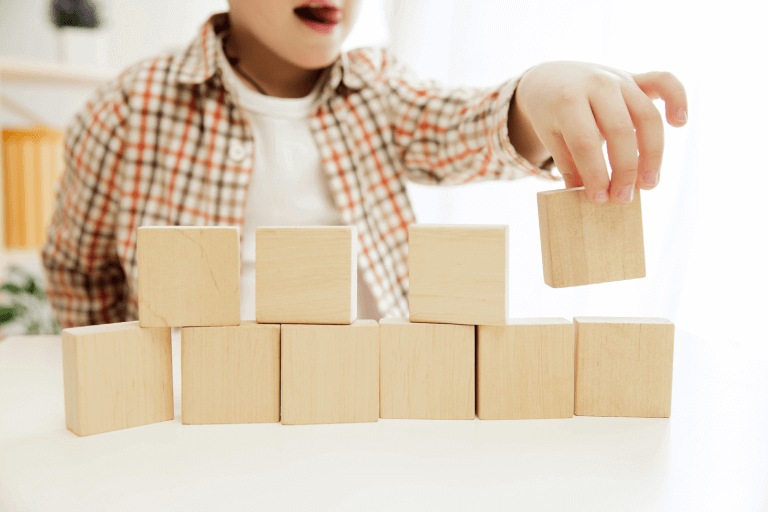Essential Tips to Support Your Child’s Growth and Development
Among the most fulfilling and difficult responsibilities a parent can have is helping their child grow. Children have several developmental phases that mold their physical, cognitive, emotional, and social well-being from birth until puberty. Creating a loving atmosphere, supporting inquiry, and promoting honest communication will help you as a parent significantly impact these areas of development.
In this guide, we’ll walk through practical, real-life strategies to support your child’s overall development, backed by examples you can easily apply at home.
1. Encouraging Physical Development
Physical growth begins from infancy and continues through childhood. Reaching milestones like crawling, walking, and running lays the groundwork for strength, coordination, and motor skills. Supporting this stage means integrating physical activity into daily life.
Real-Life Example
Set up a simple backyard obstacle course using household items like pillows, chairs, and wooden planks. As your child crawls, hops, and balances, they improve their motor skills while having fun.
For older kids, consider team sports like soccer or swimming. These not only build endurance and fitness but also teach discipline and cooperation. Try to limit screen time and prioritize outdoor play.
2. Stimulating Cognitive Development
Cognitive development involves how a child thinks, learns, explores, and solves problems. Activities that spark curiosity and challenge their mind are key here.
Real-Life Example
At bedtime, pause while reading a story and ask, “What do you think happens next?” This simple interaction boosts imagination and critical thinking. Follow up with questions like, “How would you end the story differently?”
Introduce age-appropriate puzzles, LEGO sets, or science experiments (like combining baking soda and vinegar). These encourage focus, logic, and a love for discovery.
3. Supporting Emotional Development
Emotional development is about teaching children to understand, express, and manage their emotions. This lays the foundation for healthy relationships and mental wellness.
Real-Life Example
If your child feels upset about a broken toy, validate their feelings: “I can see you’re really sad. It’s okay to feel that way.” This reassures them that emotions are normal and manageable.
Teach emotional vocabulary (happy, frustrated, nervous) and introduce coping strategies like deep breathing or drawing to express feelings.
4. Fostering Social Development
Strong social skills help children form friendships, resolve conflicts, and work as part of a team. Encouraging interaction through group activities plays a big role here.
Real-Life Example
If your child struggles with sharing, offer a simple solution: “Let’s set a timer—five minutes each with the toy.” This teaches fairness and patience.
Enroll them in group sports, music classes, or community art projects to help them navigate group dynamics and build empathy.
5. Nurturing Creative Development
Creative development isn’t just about painting or music—it’s about encouraging open-ended thinking and problem-solving. Give your child space and tools to create freely.
Real-Life Example
Offer random household items—cardboard boxes, paper rolls, and cloth—and ask your child to build something imaginative. Let them lead without giving instructions.
Art projects, storytelling, and pretend play allow kids to express their ideas and emotions in new ways.
6. Creating a Safe and Stable Environment
A secure environment is the foundation of all development. Children thrive in routines, with clear expectations and emotional safety.
Real-Life Example
Establish a calming bedtime routine—reading stories, talking about the day, or planning for tomorrow. This creates consistency and builds trust.
Open dialogue during quiet moments gives children the space to share fears or questions, helping them feel heard and supported.
7. Promoting Independence and Responsibility
Kids need opportunities to make decisions and take on small tasks. This builds their confidence and prepares them for future challenges.
Real-Life Example
Let younger children water plants or feed the pet. For older children, help them set personal goals like organizing their homework or saving up for a toy.
Encourage independence while offering guidance and support. Allowing room for mistakes is part of the learning process.
Final Thoughts
Supporting your child’s development takes time, patience, and a whole lot of love. By focusing on their physical, emotional, cognitive, social, and creative growth, you’re setting them up for long-term success. Small, intentional actions each day create a lasting impact.
Expert Help for Your Child’s Development
If you’re looking for professional guidance tailored to your child’s unique needs, Dr. Olfa Koobar, a highly experienced developmental pediatrician in Dubai, is here to help. With a holistic and compassionate approach, Dr. Koobar provides personalized care strategies to help your child reach every important milestone.
Book your consultation today and give your child the professional support they deserve for a bright future.




